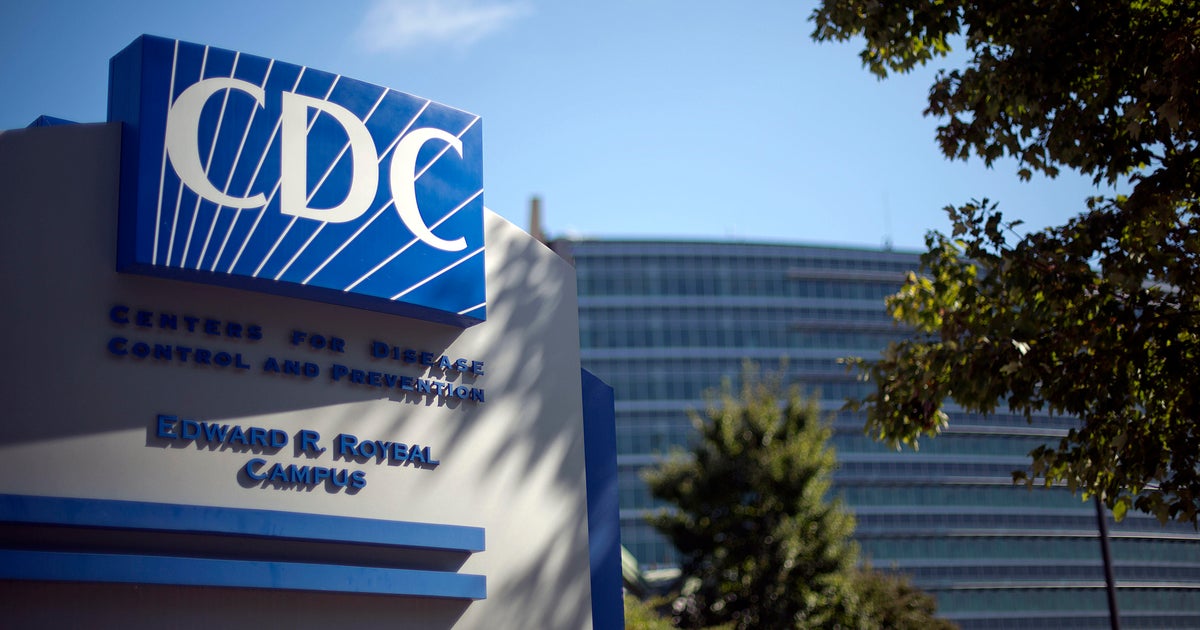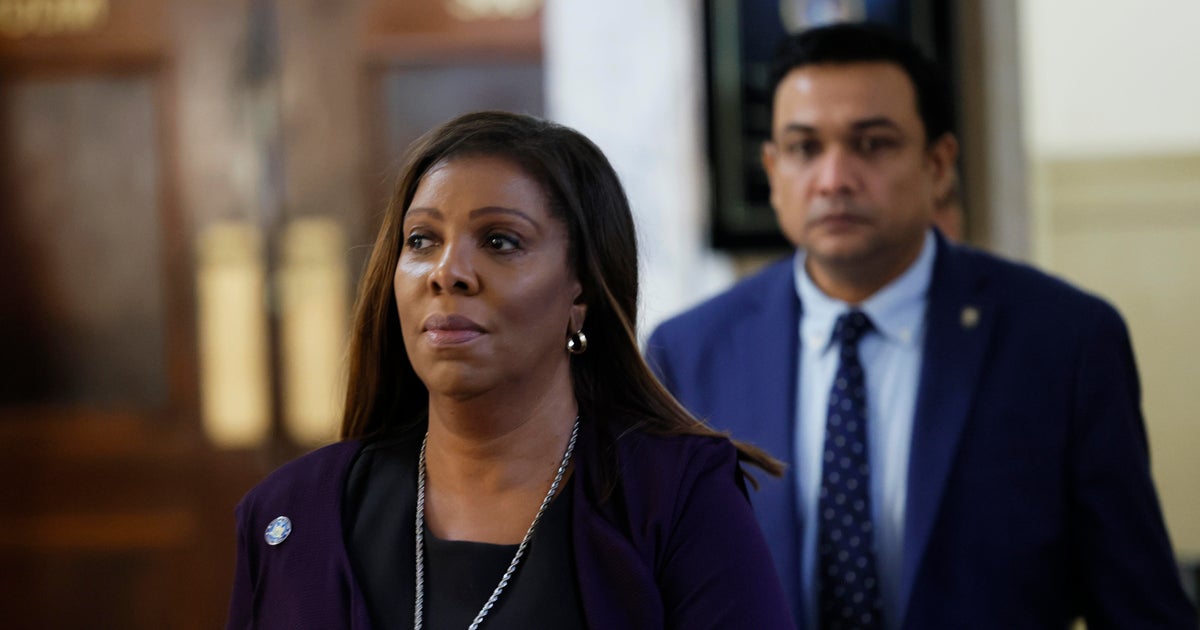Transcript: Rochelle Walensky discusses coronavirus on "Face the Nation," January 17, 2021
The following is a transcript of an interview with nominee for CDC Director Dr. Rochelle Walensky that aired January 17, 2021, on "Face the Nation."
MARGARET BRENNAN: We want to go now to the incoming Biden administration's CDC director. That's Dr. Rochelle Walensky. She is also the chief of infectious diseases at Massachusetts General Hospital. She joins us from Boston. Good morning to you, Doctor.
INCOMING CDC DIRECTOR ROCHELLE WALENSKY: Good morning, MARGARET. Thanks for having me.
MARGARET BRENNAN: We are already at 4,000 cases a day. The outgoing CDC director- deaths a day- the outgoing CDC director, says what we're about to be in the worst months. Do you agree with his forecast that it's going to get worse?
DR. WALENSKY: Unfortunately, I do, I think that, you know, we've- we've, as you noted, nearly 4,000 deaths a day, almost 400,000 deaths total. By the middle of February, we expect half a million deaths in this country. That doesn't speak to the tens of thousands of people who are living with a yet uncharacterized syndrome after they've been recovered- after they've recovered. And we still yet haven't seen the ramifications of what happened from the holiday travel, from holiday gathering in terms of high rates of hospitalizations and the deaths thereafter. So, yes, I- I think we still have some dark weeks ahead.
MARGARET BRENNAN: How often is the public going to hear from you? Are you going to brief regularly?
DR. WALENSKY: I will brief as often as I can, as often as new information comes. I also want to make sure that the subject matter experts at the Centers for Disease Control and Prevention, who have been reading and reviewing the literature, understanding the science, you hear from them. When there are new things to report, you will hear from somebody at the CDC and it may very well be me.
MARGARET BRENNAN: Well, we hope to continue to get that new information, Doctor, because there's a lot of questions right now about these reports of new strains out of U.K., out of Brazil, out of South Africa. What are you hearing? What concerns you about these new strains?
DR. WALENSKY: So the first thing I want to indicate is that viruses mutate. We've known for a long time that viruses mutate. It's not just coronavirus, it's many viruses and they mutate when they're under pressure. There is a lot of pressure right now because there's a lot of virus circulating out there, especially in this country. When we see these mutations, we worry about several things. We worry about whether they're increasing- they have increased transmissibility. We worry about whether they have increased morbidity and mortality. We worry about whether they will evade our mechanisms of either treatment or our vaccines. So far, the one from the UK looks like it is more transmissible. We don't have any more information about whether it evades our vaccines. We have indication that it likely does not. But what increased transmissibility means is there are more cases and therefore more deaths. There are certainly further studies that are looking at the South Africa strain, at the Brazil strain and other strains in Nigeria. And one of the things that this really demonstrates is our need to be vigilant and to have resources to do the surveillance, to make sure we understand what strains are here and whether we have increased transmissibility in vaccine, you know, efficacy.
MARGARET BRENNAN: The CEO of Eli Lilly has said that they have indications that the South African strain at least shows some resistance to current treatments. Do you have indication that it does as well?
DR. WALENSKY: I have heard- the- the Lilly antibody, this is the monoclonal antibody that we've been using to- to- for early stage disease, and I have heard similar things. It is one antibody. The Regeneron is an antibody cocktail. And I think that there is concern that not just the South African and the Brazilian strain, but other future strains might have resistance to those antibodies, not- not taking off all efficacy, but decreasing their efficacy.
MARGARET BRENNAN: You just said something I want to go back to on the question of surveillance, and that is basically why don't we as a country have a better system to detect which virus, which mutation and where it is. How are you going to fix that?
DR. WALENSKY: You know, I think this really just gets to the resources that are necessary in this country for an adequate public health infrastructure at baseline and one for an infrastructure when we are in the middle of a pandemic. We didn't have one at baseline and we certainly don't have one now during a pandemic. And one of the- one of the things I'm really going to advocate for, and I know the president-elect is advocating for, is to make sure that we have the resources for our public health system so that we can do the surveillance that is necessary for that testing.
MARGARET BRENNAN: You can set that up quickly enough?
DR. WALENSKY: They're working on it right now.
MARGARET BRENNAN: The president-elect has said that he's going to release all available vaccine supplies when he gets inaugurated, but then this week there was just confusion about how much vaccine supply there actually is, whether or not there's a federal stockpile. Do you have a clear answer yet on how much vaccine supply this country has?
DR. WALENSKY: We have looked carefully and we are confident that we have enough vaccine for the 100 million doses over the next 100 days. That is what the president elect has promised. It will be a hefty lift, but we have it in us to do that. And in order to do that, we have to look at the supply for sure. We have to titrate and make sure that there are enough people getting vaccinated, but not too many as to overwhelm the system, so looking at our eligibility. And we have to make sure that there are enough vaccinators. I know that the president-elect has committed to use the Defense Production Act to make sure that where there are any bottlenecks in that supply, we will address those bottlenecks through the Defense Production Act --
MARGARET BRENNAN: Are there bottlenecks right now? Is there a production problem with vaccines?
DR. WALENSKY: You know, I think that there are bottlenecks in- in different places across the entire system. As you look across the states and distribution, you know, different states are having different challenges. How much is being rolled out to each state, whether those states have adequate personnel, whether those states are getting vaccine to pharmacies. And our job is to make sure that with the entire support of the federal government that we get- we address all of those bottlenecks wherever we are so we can get vacc- vaccine into people's arms.
MARGARET BRENNAN: The president-elect has said he wants to try in his first 100 days to also reopen schools in that K through 8 age range. Yet we're looking at Europe right now and they're reversing course in the U.K. They're actually closing schools after they had been keeping them open. Given the new information about the new strains, is it still realistic to think you can reopen schools?
DR. WALENSKY: You know, I think that this is a- a goal that the president-elect has. I share the goal. We are going to look carefully. One of the things we want to do is make sure that we can vaccinate our educate- our educators and people in our school systems. We certainly don't want to open schools if they are not safe. Among the things that we have to do is make sure that we have our transmission and our- our disease rates come down in those first 100 days. Between vaccinating the teachers, resources that are necessary to get those schools adequately equipped and getting our K through 8 kids back, that- that is the anticipated goal.
DR. WALENSKY: Doctor, thank you for your time today. And we hope to have you back as CDC director to inform the public. We'll be right back.



